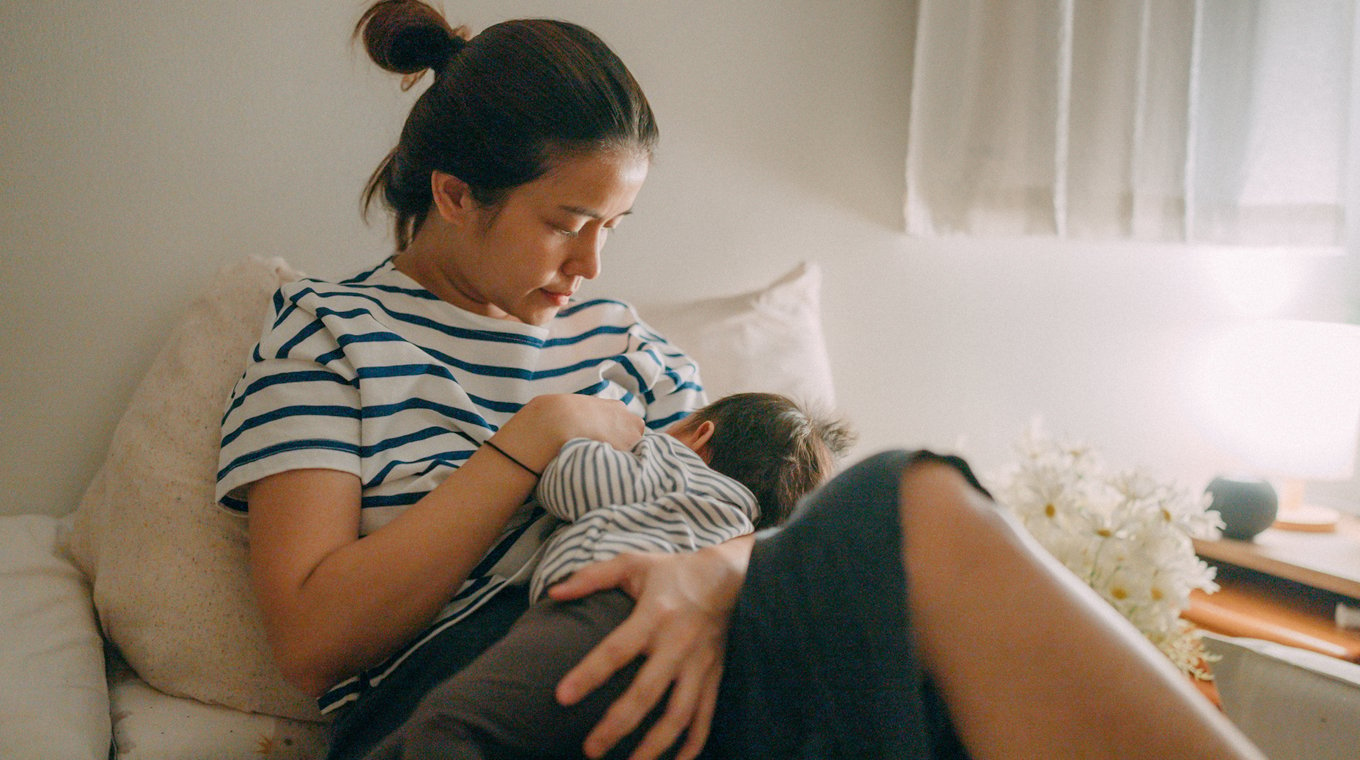
In this article
During the fourth trimester, after the difficult work of pregnancy and childbirth is complete and you and your baby settle in and get to know one another, there will be ups and downs and hurdles to overcome. One such challenge for breastfeeding parents occurs when baby has trouble latching on and feeding sufficiently. This can be overwhelming and worrisome for parents. To follow are some common latch issues and tips on how to solve them so you and your baby can have a successful and enjoyable breastfeeding experience.
Reasons why baby won't latch

There are a variety of reasons why a baby may have trouble latching. Premature babies, those with developmental delays, jaundice, or heart issues can often have difficulty latching on when nursing. A key indication of a poor latch is pain while nursing that continues after you've finished breastfeeding.
As you and baby are getting used to breastfeeding, there is an adjustment period for both of you. There may be some short-lived discomfort while breastfeeding, but that often quickly remedies itself as you both begin to get the hang of nursing. If it doesn't, it can be helpful to seek out the services of an International Board Certified Lactation Consultant (IBCLC).
"If the latch is still painful, an IBCLC and a trained pediatric professional need to assess for lip and tongue ties, also known as 'ankyloglossia,'" IBCLC and Motif Medical Lactation Director, Ashley Georgakopoulos, told Mom.com. "While it’s not the best scenario, breastfeeding can act as an early screening process for this, as catching it early enough may help reduce risks/needs for speech impediments, sleep apnea, heart implications, dental implications, and more."
Mom of three Kendra Prior struggled to breastfeed two of her children — both with tongue-ties — but in the end, through working with a lactation consultant, was able to have a successful breastfeeding experience. She chronicled her experience as a guest contributor on the breastfeeding and motherhood-focused blog, The Pumping Mommy.
"Our second had a tongue tie identified when he was two weeks old," Prior wrote. "Once his tongue tie was reversed he went immediately (like literally in the dentist’s office) from not being able to maintain a latch to nursing like a pro. I was shocked, as I had not expected it to be an immediate fix. Our third baby also had a tongue tie identified and corrected at 2 weeks old."
Signs baby is having trouble latching

So how can you tell your baby is having trouble latching? If they begin pushing away from your breast or resist, this could indicate a latch issue. Babies who only nurse for a few minutes or don't suck for a continuous stretch of time could also be struggling to feed.
On the other hand, if your baby nurses on one side at length or feeds for a long period of time but still seems hungry, they may not be latched on correctly. It can be helpful to log bowel movement and wet diaper frequency to ensure they're getting enough to eat during nursing sessions to help you determine whether or not there's an issue with milk flow.
Of course, if you're experiencing cracked, sore or red nipples, plugged milk ducts, mastitis, or other pain during and after breastfeeding, this could also indicate a poor latch.
How to help baby latch

A good latch, when breastfeeding, should feel comfortable and relaxed with the nipple resting deep within baby's mouth rather than pursed around their lips. As baby latches on, they'll begin sucking fast but then settle into a rhythm as they suck and swallow at a steady pace.
"A good latch has a lot more tongue action, no dimpling of the cheeks, popping or clicking sounds, and the lips are not tucked in. Head position is important, too, as we need room for the chin and jawline to rock back and forth, as opposed to being tucked," Georgakopoulos explained. "Allowing the head to rest with support at the base of the neck allows proper movement. Avoid pushing the back of the head in, and when latching, aim their nose at the nipple to encourage them to open wider."
Patience is key when baby has trouble latching. When baby does finally feed, expect that they may take longer a little bit longer to get the hang of sucking if they're having difficulty latching on. You can also help out a bit by gently squeezing your breast to encourage the flow of milk into baby's mouth as they're nursing.
If your baby continues to have trouble latching, contact their healthcare provider or seek out the services of a certified lactation consultant to help you and your baby have a successful breastfeeding experience.
Contact your doctor right away if nursing is causing you significant pain and discomfort. If your breasts are swollen or enlarged or your nipples reddened and cracked, you could have mastitis — a breast tissue infection — which is commonly treated with antibiotics.




